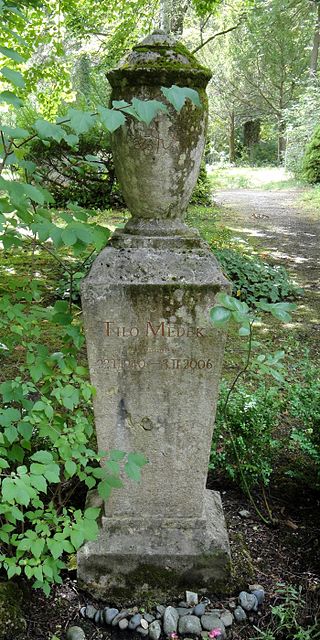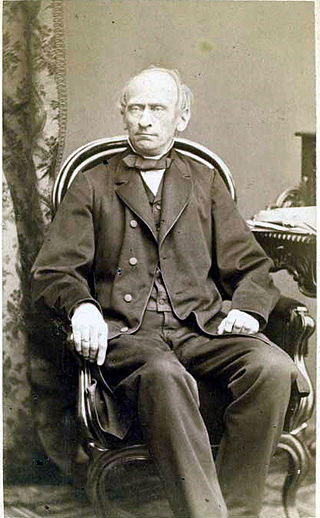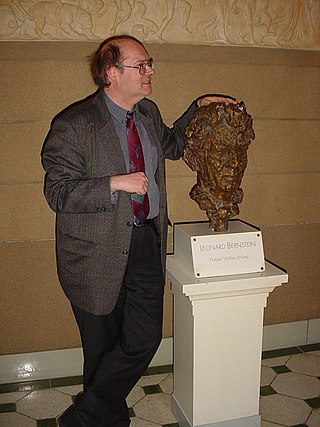Related Research Articles
The Cecilian Movement for church music reform began in Germany in the second half of the 1800s as a reaction to the liberalization of the Enlightenment.
Since the 18th century Berlin has been an influential musical center in Germany and Europe. First as an important trading city in the Hanseatic League, then as the capital of the electorate of Brandenburg and the Prussian Kingdom, later on as one of the biggest cities in Germany it fostered an influential music culture that remains vital until today. Berlin can be regarded as the breeding ground for the powerful choir movement that played such an important role in the broad socialization of music in Germany during the 19th century.

Fortunato Santini was an Italian priest, composer and music collector.

Michael Altenburg was a German theologian and composer.
Historical behaviour studies is a field of research in cultural history and cultural anthropology and a particular methodological approach to the study of human behaviour.
Martin Eybl is an Austrian musicologist.

Elisabeth Cruciger, a German writer, was the first female poet and hymnwriter of the Protestant Reformation and a friend of Martin Luther.

Tilo Medek, originally Müller-Medek, was a German classical composer, musicologist and music publisher. He grew up in East Germany, but was inspired by the Darmstädter Ferienkurse. He composed radio plays and incidental music. His setting of Lenin's Decree on Peace led to restrictions, and after he showed solidarity with the expatriated Wolf Biermann, he also had to move to the West, where he composed an opera Katharina Blum based on Heinrich Böll's novel, and worked in education. He received international awards from 1967 onwards.
Johann Georg Reißmüller was a German journalist, a co-publisher of the Frankfurter Allgemeine Zeitung(FAZ). He was a correspondent in Belgrade, then the capital of Yugoslavia, from 1967 to 1971. When the country broke up, he was instrumental in Germany recognizing Croatia and Slovenia.
Christoph-Hellmut Mahling was a German musicologist and lecturer at various universities.
Heinrich Joseph Wassermann was a German-Swiss violinist, composer and conductor.
Laurenz Lütteken is a German musicologist. Since 2001, he has been Ordinarius for musicology at the University of Zürich. Since 2013, he is General editor of MGG Online.

Moritz Brosig was a German cathedral organist and composer. He came to be seen as a leading representative of the so-called Breslau School of church musicians. Despite his Roman Catholic faith, he wrote more than thirty chorale preludes, working in a musical genre more traditionally associated with Lutheran worship.
Helmuth Osthoff was a German musicologist and composer. Much of his career was spent at Frankfurt University, prior to which he held posts at Halle University and Berlin University. He wrote the first major biography on the composer Josquin des Prez, published as a two volume monograph in 1962 and 1965
Birgit Lodes is a German musicologist and lecturer at the University of Vienna.
Arno Forchert was a German musicologist.

Fritz Jöde was a German music educator and one of the leading figures in the Jugendmusikbewegung.
Hans Huchzermeyer is a German doctor and musicologist.
Daniela Philippi is a German musicologist with a research focus on Christoph Willibald Gluck, Antonín Dvořák and Czech music history and music of the 20th century.

Dietmar Hiller is a German musicologist, organist, dramaturg at the Konzerthaus Berlin and docent at the Hochschule für Musik "Hanns Eisler" Berlin.
References
- ↑ Die Annahme des "stile nuovo" in der katholischen Kirchenmusik Süddeutschlands on WorldCat
- ↑ Heinrich Joseph Wassermann, 1791-1838 : Lebensweg und Schaffen : ein Blick in das Musikleben des frühen 19. Jahrhunderts
- ↑ Musik zwischen Komponist, Verlag und Publikum. Die Rahmenbedingungen des Musikschaffens in Deutschland im ersten Drittel des 19. Jahrhunderts on WorldCat
- ↑ "Empfehlenswerthe Musikalien" : Besprechungen musikalischer Neuerscheinungen ausserhalb der Fachpresse (Deutschland, 1. Hälfte des 19. Jahrhunderts) : eine Bibliographie on Stanford Library